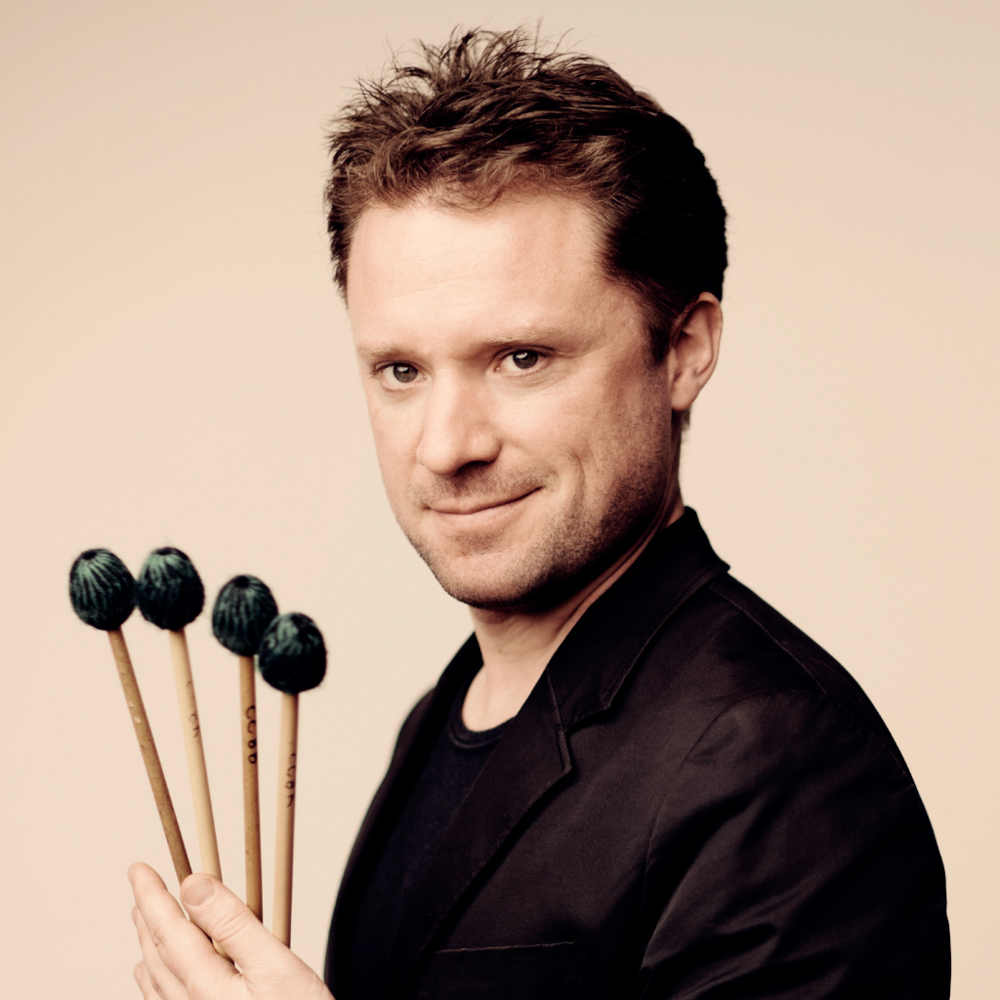The Music Academy Presents ‘Drumming’
Rare Performance of Minimalist Masterpiece

The late 1960s were a revolutionary time, and classical music was not exempt from the disruption. A small group of composers rebelled against the hyper-complex, emotionally barren atonal music then in vogue in favor of a much simpler style, which featured what sometimes seemed like endlessly repeating patterns.
The style came to be known as “minimalism,” and it arguably reached its high point with John Adams’s 1987 opera, Nixon in China. But the composers who created and nurtured it were Philip Glass, Terry Riley, and Steve Reich, who in 1971 wrote one of the first minimalist masterpieces, Drumming.
Today, the work — scored for piccolo and women’s voices, as well as an array of percussion instruments — is considered a classic. But it’s seldom heard live, due to the difficulty of assembling the forces necessary for a performance. Fortunately, the Music Academy of the West has such an ensemble, and percussionist Colin Currie will lead two performances of the piece in Hahn Hall on August 2.
Currie, an internationally renowned Scottish musician who is making his second appearance at the Music Academy, answered some questions about this seminal work in an email interview.
You’ve been playing Drumming since the beginning of the decade, and recorded it with your own ensemble. What keeps you coming back to it? There is no question that it is a masterpiece. Its extraordinarily skillful structure and sense of proportion coexist with a unique sense of liberty and improvisatory elements. It is tightly cohesive and paints a broad and emotional picture in its compelling duration. Brilliant and even bizarre techniques and ideas are assembled to create a huge emotional whole. It is enthralling and deeply profound.
Reich wrote it not long after returning from a trip to Ghana. Do you sense the influence of African drumming? There is no question that this work is a “Western classical” piece of art music. The energy and textures of African drumming patterns inform the work, but I would contest that this piece is rooted in composed music unique to the classical canon. According to the composer, one of the main influences of the trip was for him to maintain his focus on acoustic instruments rather than go down the electronics route. So, indeed, one could add that the trip was key to his sensibilities and musical direction.
Explain Reich’s fundamental technique? As I understand it, two or more musicians begin by playing identical patterns, but as one speeds up, they gradually move out of sync until they find themselves in a new and different set of interlocking patterns. Is that about right? What makes that satisfying to play or listen to? This technique of shifting patterns was termed “phasing” by the composer and allows musicians playing identical patterns to reach new “resulting patterns” by having one of the party accelerate to a new position in relation to the original. This technique is writ large in Drumming, with musicians all over the ensemble employing this process on multiple occasions to make densely contrapuntal music from essentially one (highly alluring!) initial pattern.
It is fun and thrilling to execute and ear-bendingly exciting for the listener. The no-man’s land when the accelerating player is out of phase and yet [able] to lock into the new position is a wonderful and unique musical space.
Who will be playing it here? This will be a mixture of students, faculty, and myself. In this instance, I will try to straddle the line of imposing my own strongly held views and hearing what the next generation might have to input on the work. Its impressive and inviting nature certainly encourages discussion and experimentation during the rehearsal process.
Drumming can run anywhere from 55 to 85 minutes, depending on how many repeats are taken. How long do you expect your performance to be? Well, we will see. Many factors come into play with the work, including acoustic and how the singers integrate, especially in “Movement Two.” There is ebb and flow here, but I would hope to have it around about the one-hour mark. It’s important for something to always be happening in the work, yet at no time should anything be rushed.
4·1·1
Drumming will be performed Thursday, August 2, at 4 and 7:30 p.m. in Hahn Hall, on the Music Academy’s Montecito campus (1070 Fairway Rd.). Tickets are $40. Call 969-8787 or see musicacademy.org.



